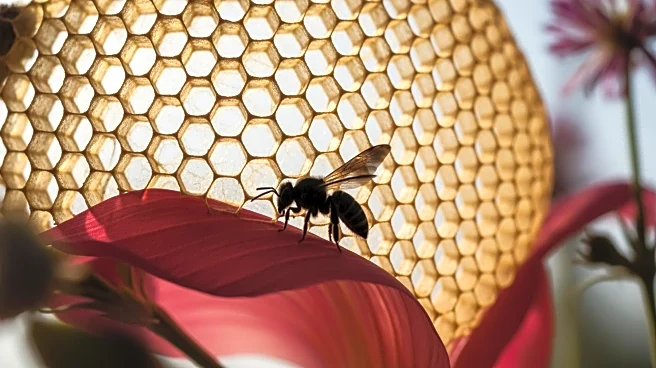What's Happening?
Research conducted on the solitary alfalfa leafcutter bee, Megachile rotundata, has shown that prepupal diapause can reduce adult lifespan. The study, which involved bees collected from a commercial alfalfa farm,
found that females emerging from diapause exhibited higher oxidative stress levels and slightly elevated prothoracicotropic hormone expression compared to non-diapause bees. The research highlights the need to further explore the relationship between immune response and oxidative stress during diapause in bees, as findings vary among species.
Why It's Important?
Understanding the effects of diapause on bee physiology is crucial for improving pollination efficiency and bee health, which are vital for agriculture. Bees play a significant role in pollinating crops, and any factors that affect their lifespan and health can have direct implications on food production and ecosystem stability. This research could lead to better management practices for bee populations, ensuring their sustainability and the continued support of agricultural systems.









